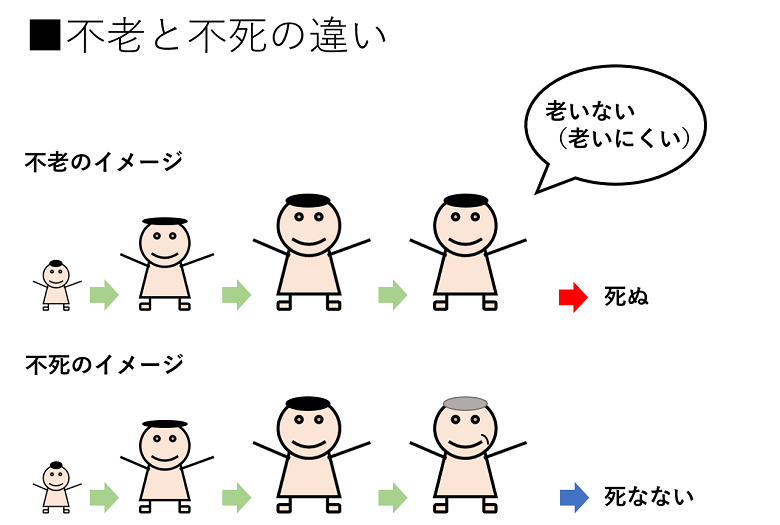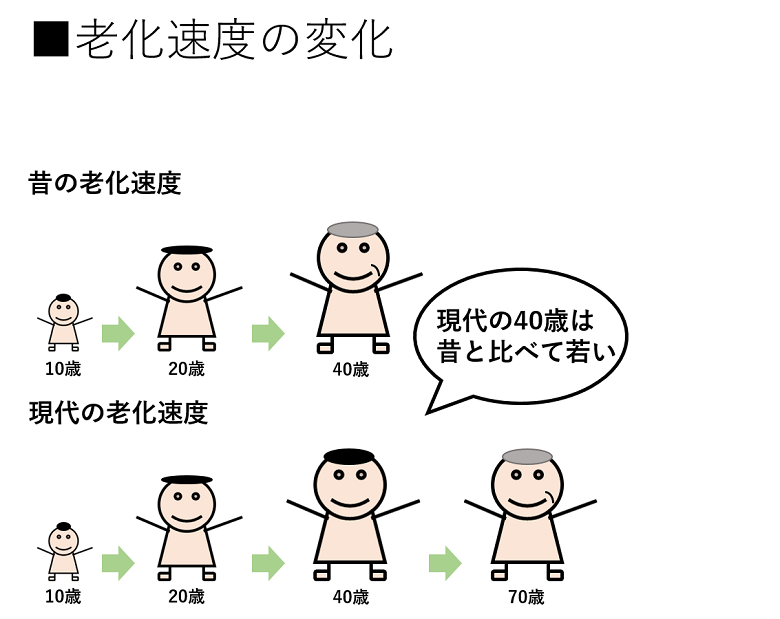"Immortality" is one of the themes that humankind has long wanted.
Nowadays, large companies such as Google and Amazon are paying attention to the possibility of "immortality and longevity" and are actively investing.
As we approach the age of 100 years of life, will future developments in science enable immortality?
Sachiko Takahashi, a life scientist who leads gene analysis services as President of GeneQuest Co., Ltd./Executive Executive Officer of Euglena Co., Ltd., will explain about "realization of immortality".
Is immortality realized?
-Is it possible to realize "immortality"? It's kind of exciting to think that "immortality" will be realized.
Takahashi: Before we talk about "immortality," we must first separate "immortality" from "immortality." Immortality is about "difficult to get old", while immortality is about "die or not" and "0 or 1".
In other words, becoming immortal and becoming immortal are different stories and must be considered separately.

― Certainly, when you hear "immortality," you tend to think of it as a set, but if you think calmly, it's a different thing ... So, first of all, do you think immortality can be achieved?
Takahashi: To put it simply, immortality has already been realized to some extent, and I think it will continue to be realized.
-Have you already realized it?
Takahashi: Yes. In the first place, "old" is said to be relative to "young." And in principle, there is no such thing as the old tale of "getting old suddenly in a moment."
When we think of humanity, we tend to look at the present point, but when we compare it with the past over a long period of time, we can say that we have never been as "immortal" as human beings today. For example, the 40-year-olds in the past and the 40-year-olds now look different.
In fact, for example, according to long-term observation of skin condition, there is data that the average skin condition of Japanese people is better than in the past due to improvement of nutrition and health condition and improvement of knowledge about ultraviolet rays. ..

Also, as it is said to be the "100 years of life", it is clear that the life span of human beings is significantly longer than in the past. Under such circumstances, we human beings have gradually gained immortality due to the development of science.
And that will continue to be achieved little by little in immortality.
What is the definition of "immortality"?
-We realized "immortality" ... Can we also realize "immortality"?
Takahashi: Let's look at "immortality" from the same premise. Whether or not "immortality" can be achieved depends on the definition.
In my opinion, "immortality" means living in a state of continuity and reproducibility.
For example, the "machine man" that appears in the science fiction comic "Galaxy Express 999" transplants the soul into a machine and becomes a robot, leaving only consciousness as it is. Physically dead, but only consciousness is alive in the robot. Can this condition be called immortality?
I personally consider this condition to be "death." The reason is that I think it lacks "continuity" and "reproducibility".
-What does that mean?
Takahashi: Even if we can shift our consciousness to robots, can we still think the same way as when our bodies existed? I think that the influence of the physical senses on consciousness is very large, and I find it difficult to think the same way.
Even if Natsume Soseki's thinking pattern is transferred to a robot, the faint sounds, temperatures, and night breeze felt in the tranquility of the night cannot be felt in the same way in the absence of the body. Do you express your feelings of love in the words "The moon is beautiful"?
In other words, even if the consciousness is transferred to the robot, the "continuity" and "reproducibility" of thinking are cut off due to a large change in the state of the body, so the Natsume Soseki robot has "immortality". It is hard to say that.
― Certainly, if you can't think the same way because you lose your body and you can't do the same thing as before, I don't think you're alive. .. ..
When it comes to that, I longed for the immortal existence that I see in science fiction movies, but the hurdle seems to be high. ..
Takahashi: Yes. Next, let us consider the possibility of "immortality" that guarantees continuity and reproducibility. The "immortal existence" that you often think of in science fiction movies is the image of "immortality that you can't choose to die" that never dies no matter how severely injured you are. right. I think it is difficult to realize with such a definition of "immortality that you cannot choose to die".
Are there two types of "immortality"?
-Yup? Does it mean that it is difficult to realize "immortality that you cannot choose to die" means that there is also "immortality that you can choose to die"?
Takahashi: Well, I think there are two types of images of "immortality" that many people have. One is "immortality that you cannot choose to die" and the other is "immortality that you can choose to die". And if it is "immortality that you can choose to die", I think that it may be possible in the future by utilizing science and technology such as iPS cells.
For example, an organ prepared from iPS cells is transplanted into an aging or defective organ, and the restoration to a good state is repeated. It may be possible to continue to extend the life by repeating it. This is effectively "immortality".
And in this "immortality", you have to decide whether to extend your life by your own will, and you can also choose death, so you are "designing" life and death.

-Will you be able to select "death"? Then I'm likely to choose the one that doesn't die. ..
Takahashi: When considering the development of humankind, the death mechanism of life itself has merits. I will talk about that next time.
[Summary of the points of immortality (Part 1)]
・ It is necessary to consider "immortality" and "immortality" separately.
・ "Immortality" has been realized to some extent by thinking relatively, and will continue to be realized.
・ "Immortality that you can choose to die" may be realized in the future.
~ Continue to the second part ~
Euglena Co., Ltd. Executive Officer in charge of bioinformatics business
/ Representative Director of GeneQuest Co., Ltd.
Shoko Takahashi
Graduated from the Faculty of Agriculture, Kyoto University. In June 2013, he started GeneQuest Co., Ltd. while enrolled in the doctoral program at the Graduate School of Agriculture and Life Sciences, the University of Tokyo. Completed the doctoral course in March 2015 and obtained a doctorate. We provide a genome analysis service that conveys genetic information on disease risk and constitution to individuals. April 2018 Appointed Executive Officer in charge of Bioinformatics Business, Euglena Co., Ltd.
Received the Ministry of Economy, Trade and Industry "2nd Japan Venture Award" Minister of Economy, Trade and Industry Award (Female Entrepreneur Award), the 10th "Japan Bio-Venture Award" Japan Venture Society Award, World Economic Forum "Young Global Leaders" Selected for "2018".
In his book, "How does genome analysis change the world of" I "? -The future that can be created by life science technology- ".
Gene analysis platform "Euglena My Health"

